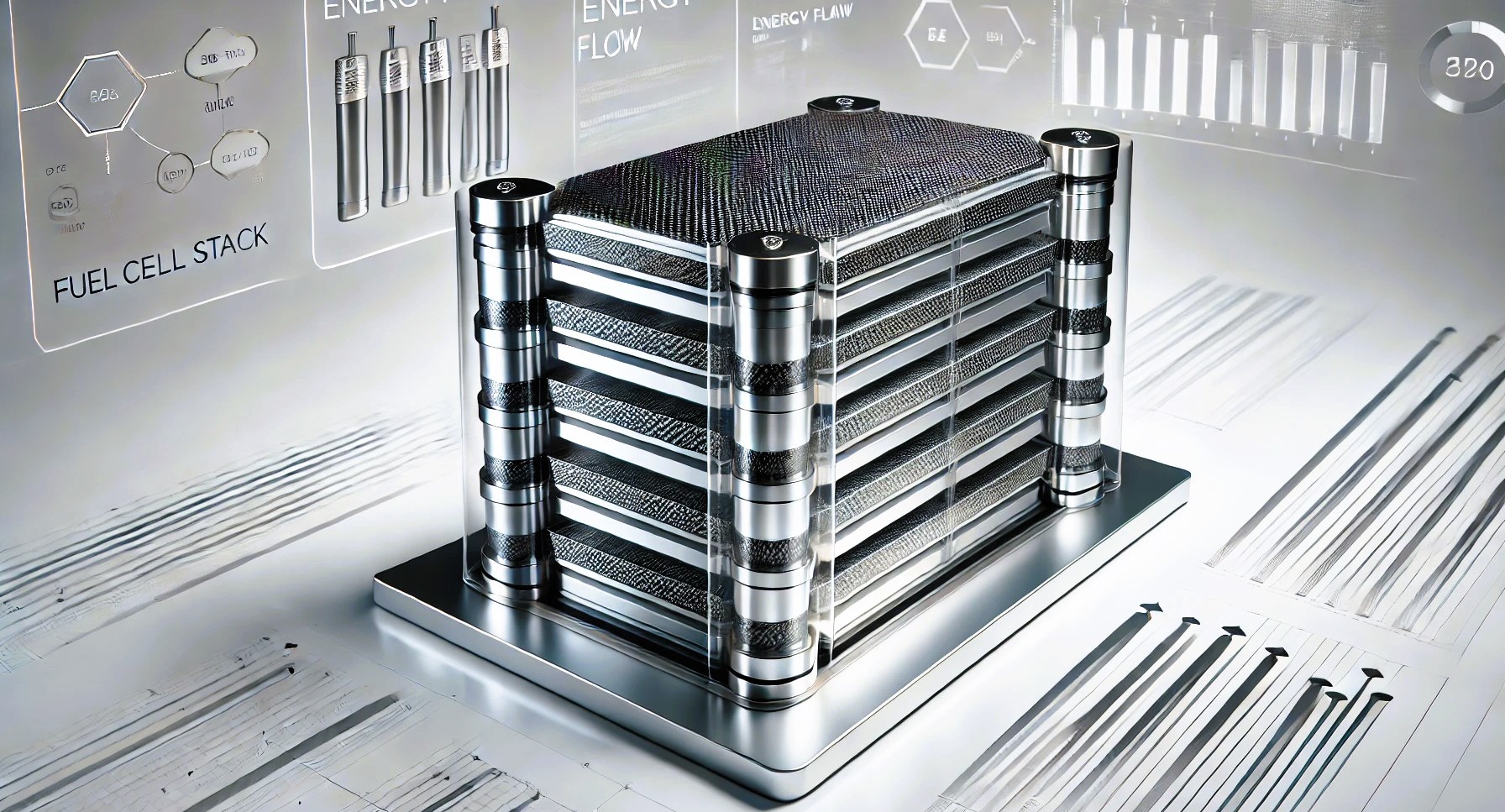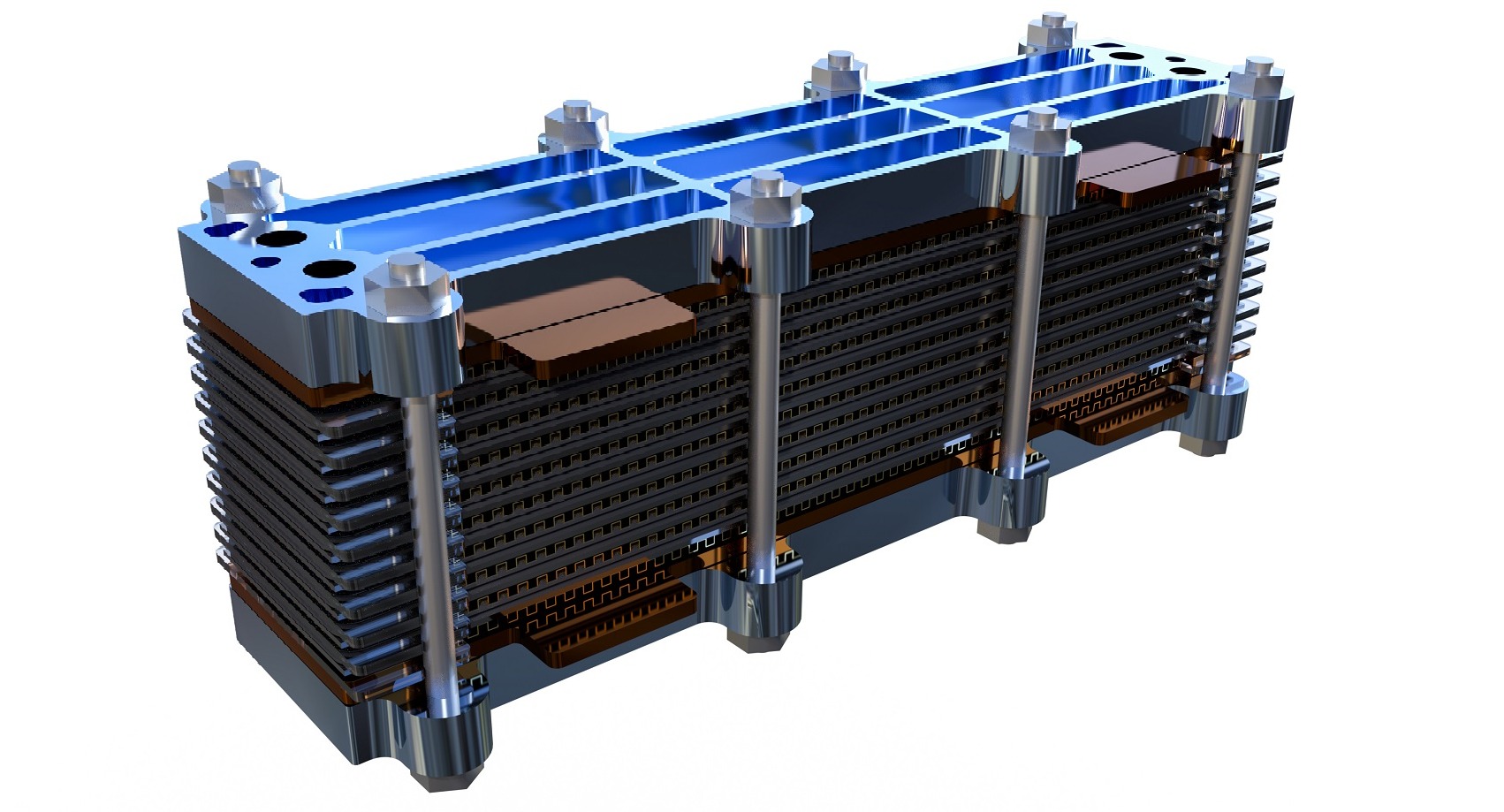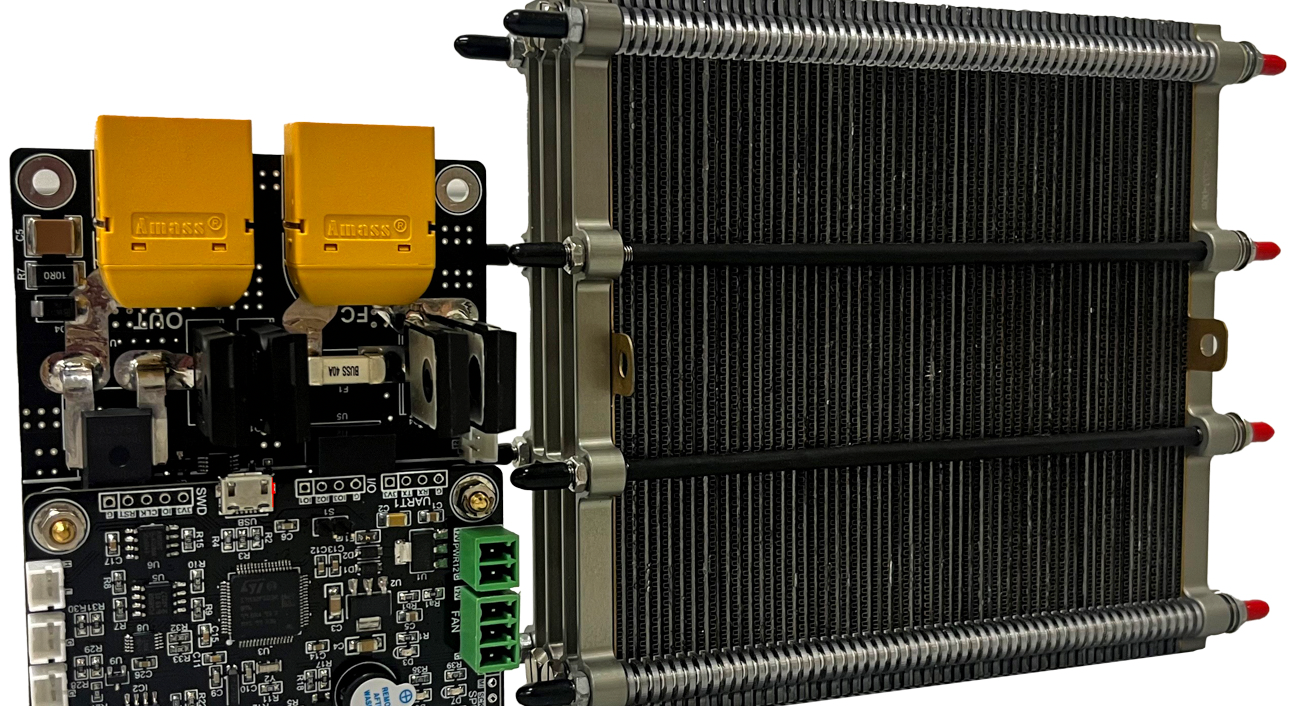High-Performance Lightweight PEM Fuel Cell Stack for Versatile Applications



KEY INFORMATION
Electronics - Power Management
TECHNOLOGY OVERVIEW
With rising concerns over environmental pollution and energy shortages, it is crucial to explore alternative green energy sources. Hydrogen stands out as a promising option, especially its use in proton exchange membrane (PEM) fuel cells. PEM fuel cells offer high efficiency, durability, and pollution-free operation, making them ideal for transport applications and stationary on-site power generation. However, despite their advantages, PEM fuel cells face challenges, including scaling multi-stack systems for large applications, optimising the performance control systems to maintain efficiency, and improving affordability and long-term durability for widespread adoption.
To address the challenges and meet high-power demands, the technology owner has designed a patented multi-stack PEM fuel cell system after more than a decade of iterative development. This highly optimized air-cooled system features patented innovations in stack design, optimised assembly processes, and an advanced performance boost control system. The system delivers 2-3 times higher energy density compared to lithium batteries and allows rapid refuelling in just a few minutes. These qualities make it ideal for applications where a lightweight, efficient, and clean energy source is essential, such as drones, telecommunications, and remote power supplies, as well as environments sensitive to air pollution.
The technology owner is seeking collaboration with industrial partners, particularly companies interested in manufacturing fuel cells, developing fuel cell systems, creating customised fuel cell applications, or engaging in joint R&D for fuel cell system innovation.
TECHNOLOGY FEATURES & SPECIFICATIONS
Power Range:
- A single fuel cell stack provides a power output ranging from tens of watts to a few kilowatts
- Suitable for a wide range of applications with flexible and scalable power needs
Multi-Stack Design:
- System's capacity can be significantly increased by combining multiple stacks, enabling higher power output for more demanding applications
Power Density:
- Achieves a power density of approximately 1-1.5 kW/kg
- Ideal for weight-sensitive applications that require a highly efficient power-to-weight ratio
Quick Refuelling:
- System can be refuelled in just a few minutes, ensuring minimal downtime and continuous operation
POTENTIAL APPLICATIONS
This lightweight PEM fuel cell system is designed for weight-sensitive and remote power applications, offering an efficient alternative to traditional generators and lithium batteries. Potential applications include, but are not limited:
Drones and Unmanned Uerial Vehicles (UAVs): Fuel cells significantly reduce system weight, extending drone flight times from minutes to hours - up to three times longer than lithium battery-powered drones. This is particularly ideal for industrial uses like:
- Inspection
- Security
- Surveillance where extended flight duration is critical
Remote Power Supply: The system provides reliable power for remote sites, off-grid and backup, efficiently powering low to medium equipment. It serves as a practical alternative to generators, especially in areas where consistent electricity or low emissions are required, such as:
- Remote communication towers
- Emergency power systems
Portable or Light Vehicle Power: By extending runtime and range without frequent recharging, the fuel cell system reduces downtime and eliminates charging-related risks. It is particularly suitable for:
- Centralized locations (e.g., ports, airports, large warehouses) where continuous operation is crucial
- Portable off-grid power solutions due to the lightweight design
- Powering light vehicles
Unique Value Proposition
Our technology offers distinct advantages that set it apart:
- Optimized Fuel Cell Design: Over a decade of iterative development has led to a highly optimised air-cooled fuel cell system. From stack component design to assembly processes and operational control, every aspect has been optimized, resulting in significantly higher power density compared to conventional systems
- Zero Emissions: Leveraging the inherent nature of fuel cells, this solution delivers clean energy with zero emissions, making it an environmentally friendly alternative
- Ideal for Weight-Sensitive Applications: The combination of the lightness of hydrogen with advanced fuel cell technology offers a significant advantage for weight-sensitive applications where a long-lasting, clean power source is critical
